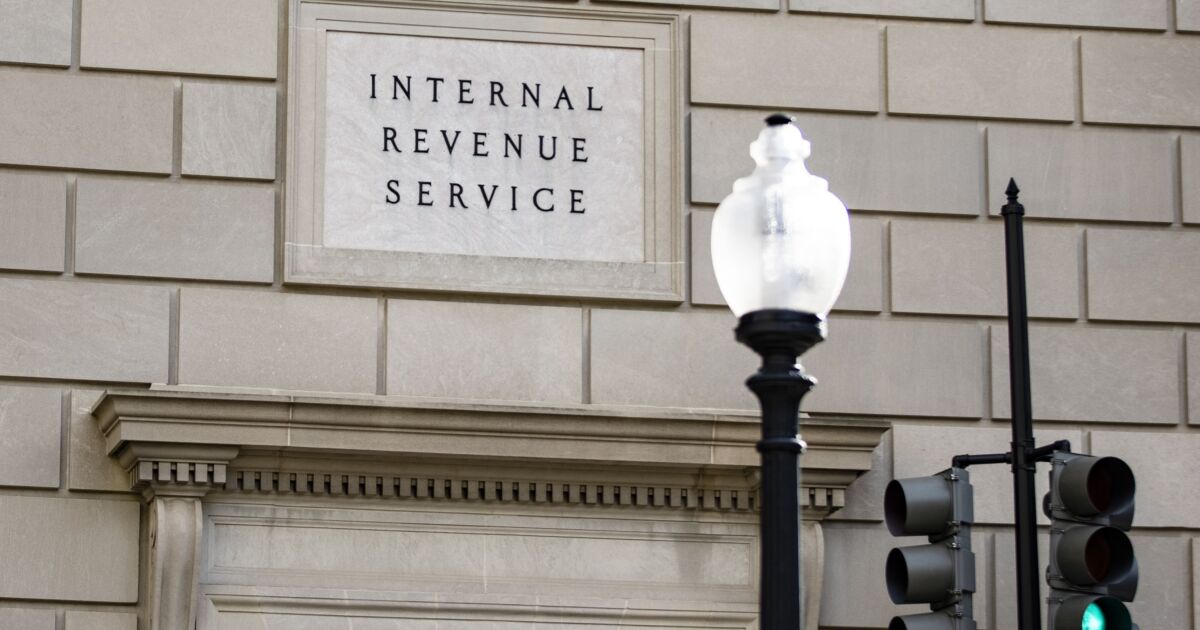Accounting
Liability insurance for accountants: New times, new risks
Published
6 months agoon

CPA firms continue to face unique challenges as they navigate some of the current liability issues and trends facing the profession, including beneficial ownership information filing under the Corporate Transparency Act, artificial intelligence, and cyberthreats.
“We strongly encourage firms to proactively prepare for risk by following some basic best practices,” advised Suzanne Holl, a CPA and executive vice president at insurance company Camico.
These best practices include:
- Set the right “tone from the top.” Encourage and reward a culture of transparency within the firm hierarchy to identify and communicate risk issues to help minimize potential exposures and enable the firm to early report liability concerns to their professional liability carrier and benefit from any proactive risk management guidance and support that may be available.
- Prioritize performing the right services for the right clients, as not every client is a good fit for every firm. Evaluating the firm’s client base has become even more important as firms face staffing constraints.
- Close the expectation gap. Proactively manage and document client expectations to minimize the risks associated with potential gaps between what they expect and what you’re offering.
Corporate Transparency Act risks
The new beneficial ownership reporting requirements under the CTA took effect on Jan. 1, 2024, and months later, the small-business community remains woefully unprepared for compliance with this complex reporting regime. As many small businesses look to their CPA for guidance and assistance, this poses potential added risks to firms.
One of the overarching concerns is whether CTA-BOI advisory services would be deemed the unauthorized practice of law for CPAs and nonattorney tax professionals. Given that each state has its own definitions of what services are considered UPL, this is a complex and nuanced risk requiring firms to stay current on the UPL issue in the states where they are licensed, as well as the states in which clients reside.
John Raspante, director of risk management at McGowanPro, sees the CTA as a source of controversy.

Pixelbliss – stock.adobe.com
“It hasn’t caused a claim yet, but we’ve received more than 1,000 calls regarding beneficial ownership reporting requirements,” he said. “The forms have to be filed by the end of the year for existing entities, with FinCEN. The questions revolve around whether CPAs are allowed to do this work, and if they do it, will they be covered under their policy. It’s more than likely that claims will be forthcoming on this issue. Once the form is filed, there has to be continual monitoring since modifications to the form have to be filed as well. If the accounting firm is sold, if the filer or a beneficial owner changes their residence, or the business adds an additional owner, it all has to be reported.”
Camico continues to advise CPAs to be vigilant and prepared to minimize the potential of additional liability exposures by following risk management best practices, which at a minimum should include:
Informing and advising clients in writing regarding the new beneficial ownership reporting requirements under the CTA, and recommending that they seek legal guidance.
Modifying traditional tax and financial statement engagement letters to include language that specifically disclaims the firm’s involvement in assisting clients with CTA compliance under the terms of that agreement.
Using standalone engagement letters if the firm is rendering CTA-related services to clients that specify the limited nature of the services the firm is providing, such as the filing of the initial BOI report or the filing of a corrected or updated BOI report, and that contain appropriate disclaimer language for such limited services.
Preparing your own firm for compliance if you are deemed to be a “reporting company” under current CTA guidance.
Generative AI
“Generative AI is no longer just a buzzword,” said Holl. “The technological advancements that generative AI promises have the potential to reshape how firms provide professional services, communicate with clients, and even how leaders manage their firm.”
Although generative AI solutions can provide benefits for CPA firms, she said, “From a liability perspective, there are critical risks associated with generative AI that should be vetted by firms and mitigation strategies implemented to minimize potential exposures.”
Among those risks are concerns with accuracy and quality control, confidentiality, privacy, security, and ethical issues. Successful integration of generative AI requires a well-crafted implementation plan that should include, among other things, appropriate education and training to ensure responsible use.
“We believe a clear and concise generative AI policy to document a firm’s authorized usage is paramount in minimizing risk and achieving firm goals using AI,” Holl said.
Cyber exposures
Cyber exposures have become increasingly problematic as cyber criminals are targeting CPA firms and tax professionals due to the type of information they gather and store. If the criminals are successful in gaining access to the firm’s information, costly measures may need to be taken including, but not limited to, hiring IT forensic experts to determine the extent of a potential breach, consulting with attorneys specializing in data breach laws and notification obligations, and providing credit monitoring to those impacted by a breach.
A far-too-common scenario is when a fraudster controls the client’s and the firm’s email, commonly referred to as a “man in the middle” attack. In these situations, the fraudulent request may mimic previous legitimate requests, which can make it very difficult for a firm to identify the request as illegitimate. As fraudulent wire transfers frequently cause large dollar losses, firms need to be hypervigilant in their efforts to protect the firm and clients against wire transfer fraud.
Insurance experts strongly recommend that firms have written protocols in place with clients who need such services that outline the protocols to be followed when executing wire transfer requests.
Preparing defenses
It’s important to have a “meeting of the minds” at the outset of a client relationship, according to Sarah Ference, risk control director for the Accountants Professional Liability Program at CNA, the underwriter for the AICPA Professional Liability Insurance Program. An engagement letter is the tool that not only helps achieve this, but is also a first line of defense if a relationship sours.
“An engagement letter helps set the stage for success throughout the engagement. That kind of understanding really aids in mitigating risk and resolving issues that might arise, or may even prevent them from arising. Yet CPAs tend to shy away from using engagement letters,” she said.
“We continue to see areas of practice like tax which lack engagement letters,” Ference noted. “Of the claims asserted in 2023 against CPA firms in the AICPA Professional Liability Insurance Program, about 75% stemmed from tax services. Of those, over 50% didn’t have an engagement letter, which puts the CPA in a difficult position to defend the claim. We have seen similar percentages in prior years. Intuitively, if there was an engagement letter that spelled out what you’ve agreed to do, what a client’s responsibility was, and limitations of your responsibility, a claim may never arise. In that case, a client disagreement wouldn’t appear on our radar because the disagreement would have already been resolved before it turned into a claim.”
Anytime a CPA is delivering a service, they should consider an engagement letter, according to Ference: “Engagement letters are critical when doing any kind of consulting. The more specific, the better. Make sure that the letter is structured in such a way that there is no ambiguity. Ambiguity opens the door to broad interpretations and makes it difficult to align expectations between the CPA and the client.”
“It’s all about relationships,” according to Alvin Fennell, vice president and senior risk advisor at Aon, manager of the AICPA Professional Liability program. “CPAs are extremely customer-sensitive. Where they have a longtime client, they hate to request an engagement letter. I tell them: ‘Blame it on your insurance carrier. They require me to get an engagement letter!'”
“The most prevalent current risk is changes in regulations and accounting standards,” he said.
The lack of talent coming into the profession is a problem. “A lot of individuals are coming out of college and going into industry rather than accounting firms, causing more competition for talent in firms now. Big firms are acquiring smaller firms just to get at the talent they need,” Fennell said.
Finally, Raspante noted that, while accountants may not have handled a lot of Employee Retention Credits, many were confronted with the need to amend the business tax return to include the proceeds of an ERC.
“If the underpinnings of the ERC were incorrect, it can cause issues with us,” he said. “The voluntary disclosure program will create more claims. If an accountant didn’t tell us about the voluntary disclosure, it can cause a lot of damage.”
You may like

Share and share alike; fleecing the flock; United they fall; and other highlights of recent tax cases.
Shreveport, Louisiana: Tax preparer Sharhonda Law, 39, of Haughton, Louisiana, has been sentenced to 20 months in prison, to be followed by a year of supervised release, for tax fraud.
She owned and operated Law’s Tax Service, where she was the sole preparer. Law prepared and filed a client’s 2019 federal return that included a fraudulent Schedule F that claimed the client had farming income and had incurred farming expenses and was due a refund. In fact, the client owed taxes for that year. Investigation also showed that Law’s client did not have a farm, nor did they tell Law they owned or operated a farm and had never provided Law with any of the farming-related income or expenses on the Schedule F.
Law pleaded guilty in November to one count of aiding and assisting in making and subscribing a false return.
She made similar misrepresentations on six other returns for clients and falsified her own income on two of her personal returns; she also failed to file returns for other years. The total criminal tax loss was $123,455, which Law was ordered to pay in restitution.
Evansville, Indiana: Marcie Jean Doty, operations manager for a property management business, has been sentenced to five years in prison, to be followed by three years of supervised release, after pleading guilty to wire fraud, failure to file returns and filing false returns.
Between May 2017 and June 2022, Doty stole some $1,803,466.38 from her employer via unauthorized checks and ACH transfers. She executed 99 unauthorized transfers, totaling $503,151.59, and wrote 279 unauthorized checks to herself, totaling $1,300,314.79. The funds were transferred from her employer’s bank accounts to her personal ones. Doty entered false information in the business accounting software, representing that the checks were written to her employer instead of herself.
In January 2017, Doty agreed to purchase a 25% equity share in her employer’s business. Doty used some of the money she stole via the scheme to make payments towards her purchase of the share.
For tax years 2018 through 2020, Doty didn’t report the income derived from her scheme, failing to report some $786,280.70. She also didn’t file returns for tax years 2021 and 2022, failing to report some $1,006,983.84 in income.
She has been ordered to pay $2,517,343.05 in restitution.
Crofton, Kentucky: Marvin Upton has been sentenced to two years and three months in prison, to be followed by three years of supervised release, for fraud and tax offenses.
Upton, until recently the pastor at local Crofton Pentecostal Church, was sentenced for three counts of bank fraud and three counts of filing false returns. From 2013 to 2016, Upton defrauded one of his elderly parishioners, who suffered from dementia. During that same time, Upton submitted multiple false returns that omitted income from the fraud.
Jacksonville, Florida: Exec Daniel Tharp has pleaded guilty to failure to pay taxes.
Tharp was managing director for Hangar X Holdings LLC, where he had the responsibility to collect and account for the company’s trust fund taxes from employees’ pay. From October 2014 through December 2019, the company paid wages to employees and withheld these, but Tharp didn’t pay the money to the IRS. In total, he caused the company to fail to pay over $1.2 million in such taxes.
He faces a maximum of five years in prison.

Detroit: A federal court in Michigan has issued an injunction against tax preparers Alicia Bishop and Tenisha Green, barring them from preparing federal returns for others.
The court previously barred Alicia Qualls, Michael Turner and Constance Stewart from preparing federal returns for others and previously barred the business for which all of the preparers worked, United Tax Team Inc., and United Tax Team’s incorporator, Glen Hurst, from preparing federal returns for others.
Hurst, United Tax Team, Qualls, Turner and Stewart consented to the judgments.
According to the complaint, Hurst incorporated United Tax Team in 2016, and was its sole shareholder and corporate officer. Hurst hired the return preparers — including Qualls, Bishop, Green, Turner and Stewart — who worked at United locations in the Detroit area and prepared returns for clients that included false information not provided by clients.
The complaint alleges that Qualls, Bishop, Green, Turner and Stewart each repeatedly placed false or incorrect items, deductions, exemptions or statuses on returns without clients’ knowledge, including, in various cases, fabricated Schedule C businesses; fabricated education expenses; improperly claimed pandemic relief tax credits; improperly claimed head of household status; and fictitious child and dependent care expenses.
Akron, Ohio: Tax preparer Mustafa Ayoub Diab, 41, of Ravenna, Ohio, has been convicted of orchestrating a financial conspiracy that defrauded the U.S. government of pandemic benefits.
Diab was found guilty on 12 counts of theft of government funds, 12 counts of bank fraud, 11 of wire fraud, six of aggravated ID theft and one count each of conspiracy to commit wire and bank fraud and to launder monetary instruments.
Diab owned and operated a tax prep business where he and his co-conspirator, Elizabeth Lorraine Robinson, 33, also of Ravenna, developed a scheme to take advantage of the Pandemic Unemployment Assistance Program and the Paycheck Protection Program. From around June 2020 to August 2021, Diab submitted fraudulent applications for pandemic unemployment benefits and small-business assistance for many of his tax prep business clients.
Without their knowledge, he lied about their employment or about their being small-business owners. Investigators also discovered that Diab opened bank accounts in his clients’ names to receive the benefit funds via direct deposit, which the clients did not have access to, along with accounts in the names of Robinson and Diab’s sister. When the relief money was deposited into these accounts, he withdrew the funds in cash for his personal use, buying real estate and cars and taking international trips.
Diab submitted fraudulent applications in the names of nearly 80 victims, causing the federal government to pay out more than $1.2 million in pandemic benefits that were deposited into the various bank accounts that Diab controlled.
Sentencing is July 28. He faces up to 30 years in prison.
Robinson previously pleaded guilty to conspiracy, wire fraud, bank fraud and theft of government funds; she awaits sentencing and also faces up to 30 years in prison.
Columbus, Ohio: A federal court has permanently enjoined tax preparer Michael Craig from preparing returns for others and from owning or operating any prep business.
Craig, both individually and d.b.a. Craig’s Tax Service, consented to entry of the injunction.
According to the complaint, many tax returns that Craig prepared made false and fraudulent claims, including losses for fictitious Schedule C businesses; claiming costs of goods sold for types of businesses that cannot claim these costs and without supporting documentation; inventing or inflating expenses for otherwise legitimate Schedule C businesses; and taking deductions for both cash and non-cash charitable deductions that are either exaggerated or fabricated.
According to the complaint, the IRS estimated a tax loss of more than $3.1 million in 2022 alone.
Craig must send notice of the injunction to each person for whom he prepared federal returns or refund claims after Jan. 1, 2022.
Accounting
IRS proposes to end penalties on basis-shifting transactions
Published
15 hours agoon
April 17, 2025

The Treasury Department and the Internal Revenue Service are planning to withdraw regulations that labeled basis-shifting transactions among partnerships and related parties as “transactions of interest” akin to tax shelters and stop imposing penalties on them.
In
The notice provides immediate relief from penalties under Section 6707A(a) to participants in transactions identified as transactions of interest in the Basis Shifting TOI Regulations that are required to file disclosure statements under Section 6011, and (ii) penalties under Sections 6707(a) and 6708 for material advisors to transactions identified as transactions of interest in the basis-shifting regulations that are required to file disclosure statements under § 6111 and maintain lists under Section 6112.
The notice also withdraws Notice 2024-54, 2024-28 I.R.B. 24 (Basis Shifting Notice), which describes certain proposed regulations that the Treasury Department and the IRS intended to issue addressing partnership related-party basis-shifting transactions.
The
The IRS and the Treasury acknowledged in Thursday’s notice that it had heard similar objections. “Taxpayers and their material advisors have criticized the Basis Shifting TOI Regulations as imposing complex, burdensome, and retroactive disclosure obligations on many ordinary-course and tax-compliant business activities, creating costly compliance obligations and uncertainty for businesses,” said the notice.
It cited an
Last June, former IRS Commissioner Danny Werfel announced a
“Our announcement signals the IRS is accelerating our work in the partnership arena, an arena that has been overlooked for more than a decade with our declining resources,” said Werfel during a press conference last year. “We’re concerned tax abuse is growing in this space, and it’s time to address that. So we are building teams and adding expertise inside the agency so we can reverse these long-term compliance declines.”
Using complex maneuvers, high-income taxpayers and corporations would strip the basis from the assets they owned where the basis was not generating tax benefits and then move the basis to assets they owned where it would generate tax benefits without causing any meaningful change to the economics of their businesses. The basis-shifting transactions would enable closely related parties to avoid paying taxes. The Treasury estimated last year that the transactions could potentially cost taxpayers more than $50 billion over a 10-year period.
“For example, a partnership might shift tax basis from a property that does not generate tax deductions, such as stocks or land, to property where it does, like equipment,” said former Deputy Secretary of the Treasury Wally Adeyemo during the same press conference. “Businesses have also used these techniques to depreciate the same asset over and over again.”
Congress has since removed much of the extra funding from the Inflation Reduction Act that was being used to scrutinize such transactions, and the IRS has been
Accounting
Tax-busting ETF-share class filing updates keep piling up
Published
16 hours agoon
April 17, 2025

Optimism is building that a
This week, at least seven firms including JPMorgan and Pacific Investment Management Co. filed amendments to their applications to create funds that have both ETF and mutual fund share classes. The filings update initial applications — some of which sat idle for months — with more details about the fund structure, and suggest the U.S. Securities and Exchange Commission has engaged in constructive discussions with a growing number of applicants, according to industry lawyers.
“The SEC signaling is clear. These amendments really constitute the SEC prioritizing ETF share class relief,” said Aisha Hunt, a principal at Kelley Hunt law firm, which is working with F/m Investments on its application.
The latest round of filings, which also include Charles Schwab and T. Rowe Price, are serving as yet another sign that the SEC is fast-tracking its decision process on multi-share class funds, after F/m Investments and Dimensional Fund Advisors filed amendments
Brian Murphy, a partner at Stradley Ronon, the firm handling DFA’s filing, said other fund managers are receiving feedback and amending applications.
“We understand that the SEC staff is telling other asset managers to follow the DFA model as well,” said Murphy, who is also a former Vanguard lawyer and SEC counsel.
At stake is a novel fund model where one share class of a mutual fund would be exchange-traded. It was
After Vanguard’s patent on the design expired in 2023, over 50 other asset managers
According to Hunt, the regulator has signaled that it will first approve a small subset of the applicants.
‘Work to be done’
To be sure, an approval doesn’t mean that an issuer will be able to immediately begin using the fund blueprint. Because ETFs trade during market hours, they require different infrastructure than mutual funds, so firms that currently only have the latter structure will need to hire staff and form relationships with ETF market makers before they implement the dual-share class model.
“Dimensional has sort of set the template for what that language looks like in the context of these filings. And by extension cleared the way for approval, which feels imminent now,” said Morningstar Inc.’s Ben Johnson. “But then once we arrive at approval, there’s still going to be work to be done.”
Mutual fund firms will need to prepare for shareholders who want to convert, tax-free, into the ETF share class, which would require some “plumbing” and structural changes, said Johnson.
Another point to consider is that mutual funds that have significant outflows may not be ripe for ETF share classes, as that could result in a tax hit, according to research from Bloomberg Intelligence. In 2009, a Vanguard multishare class fund was hit with a 14% capital-gains distribution after a massive shareholder redeemed its shares in the fund. Fund outflows can bring about a tax event when a mutual fund has to sell underlying holdings to meet redemptions.
Mutual funds have largely bled assets in recent years as ETFs have grown in popularity. As a result, legacy asset managers have found themselves battling for a slice of the increasingly saturated ETF market, which now boasts over 4,000 U.S.-listed ETFs. SEC approval of the dual-share design could open the floodgates to

Where ‘Made in China 2025’ missed the mark

Tax Fraud Blotter: Reaping and sowing

IRS proposes to end penalties on basis-shifting transactions

New 2023 K-1 instructions stir the CAMT pot for partnerships and corporations

The Essential Practice of Bank and Credit Card Statement Reconciliation

Are American progressives making themselves sad?
Trending
-

 Personal Finance1 week ago
Personal Finance1 week agoStudent loan changes likely coming under Trump
-

 Accounting7 days ago
Accounting7 days agoTrump’s tariff shift has markets, industry groups panicked
-

 Personal Finance1 week ago
Personal Finance1 week agoSocial Security updates anti-fraud measures for benefit claims
-

 Personal Finance1 week ago
Personal Finance1 week agoMajority of Americans are financially stressed from tariff turmoil: CNBC survey
-

 Personal Finance1 week ago
Personal Finance1 week agoSocial Security COLA projected to be lower in 2026. Tariffs may change that
-

 Economics1 week ago
Economics1 week agoTrump’s triple-digit tariff essentially cuts off most trade with China, says economist
-

 Economics1 week ago
Economics1 week agoTrump’s tariff blitz faces strong legal challenges
-

 Finance7 days ago
Finance7 days agoStocks making the biggest moves midday: Frontier Group, JPMorgan, Apple, Stellantis, BlackRock and more
